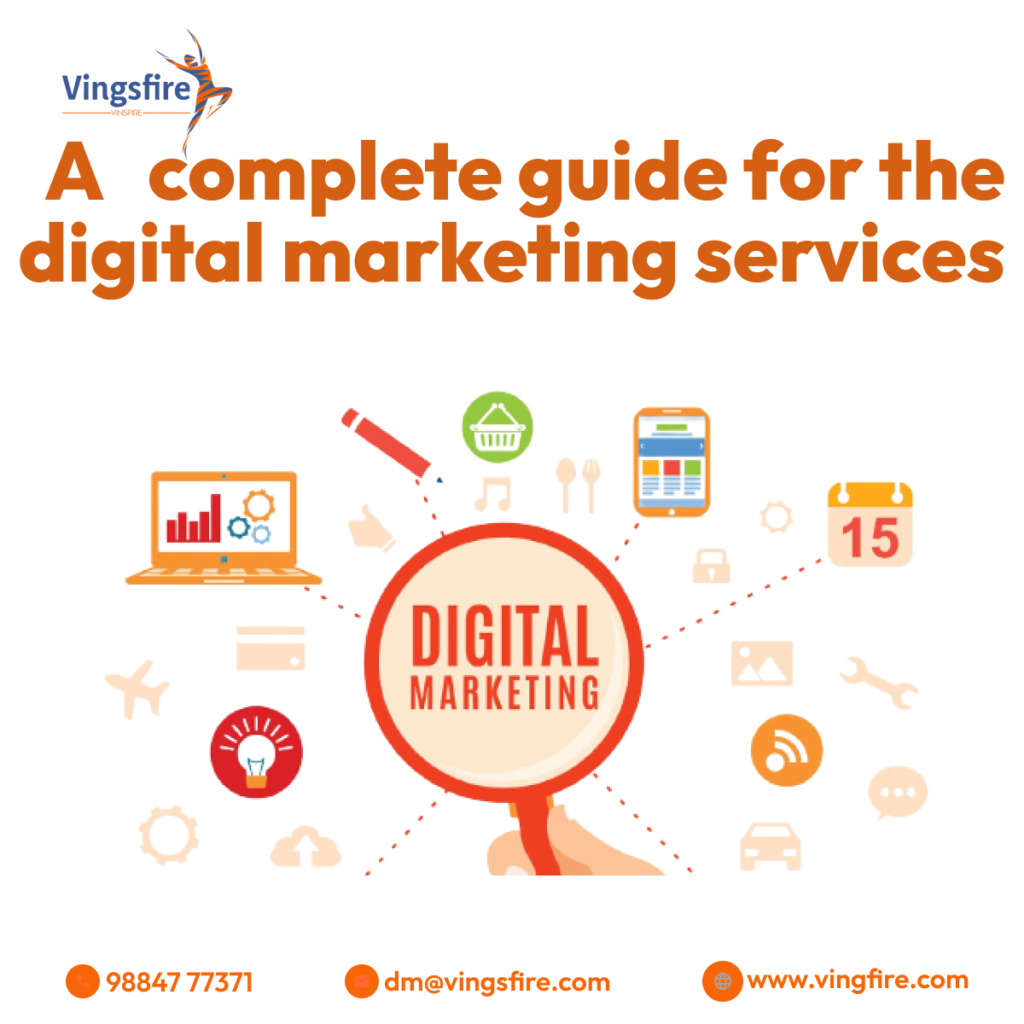
In the digital age, having a robust online presence is essential for businesses looking to thrive in today’s competitive marketplace. Digital marketing services encompass a wide range of strategies and tactics designed to help businesses reach and engage with their target audience effectively in the online sphere. From search engine optimization (SEO) and social media marketing to email campaigns and content creation, these services play a crucial role in driving brand awareness, generating leads, and ultimately, driving revenue. In this comprehensive guide, we will explore the various digital marketing services available to businesses, their benefits, and how they can be leveraged to maximize online potential.
1. Search Engine Optimization (SEO):
Search Engine Optimization (SEO) is a fundamental digital marketing service aimed at improving a website’s visibility and ranking on search engine results pages (SERPs). By optimizing various aspects of a website, such as content, meta tags, and site structure, SEO helps businesses increase organic traffic and attract qualified leads.
Key components of SEO include keyword research, on-page optimization, off-page optimization, and technical SEO. Keyword research involves identifying relevant keywords and phrases that potential customers are likely to use when searching for products or services online. On-page optimization involves optimizing website content, meta tags, and images to make them more search engine-friendly. Off-page optimization involves building backlinks from reputable websites to improve a website’s authority and credibility. Technical SEO involves optimizing website speed, mobile-friendliness, and other technical aspects to improve user experience and search engine rankings.
2. Social Media Marketing:
Social media marketing is another essential digital marketing service that focuses on leveraging social media platforms to reach and engage with target audiences. With billions of active users on platforms like Facebook, Instagram, Twitter, LinkedIn, and TikTok, social media marketing offers businesses a powerful way to connect with potential customers, build brand awareness, and drive engagement.
Key components of social media marketing include content creation, community management, paid advertising, and analytics. Content creation involves developing engaging and relevant content, such as posts, images, videos, and stories, to share with followers and attract new audiences. Community management involves monitoring social media channels, responding to comments and messages, and engaging with followers to foster relationships and build brand loyalty.
Paid advertising on social media platforms allows businesses to target specific demographics, interests, and behaviors to reach their ideal audience effectively. With advanced targeting options and ad formats, businesses can create highly targeted and personalised campaigns that drive results, such as website traffic, lead generation, and sales.
Overall, social media marketing offers businesses a powerful way to connect with audiences, build brand awareness, and drive engagement in today’s digital landscape.
3. Content Marketing:
Content marketing is a strategic digital marketing service focused on creating and distributing valuable, relevant, and consistent content to attract and retain a target audience. Content can take various forms, including blog posts, articles, videos, infographics, podcasts, eBooks, white papers, and more, and can be distributed through various channels, such as websites, social media, email, and third-party platforms.
Key components of content marketing include content strategy, content creation, content distribution, and content measurement. Content strategy involves defining goals, target audience, topics, formats, and distribution channels to guide content creation and distribution efforts. Content creation involves developing high-quality, informative, and engaging content that resonates with target audiences and aligns with business objectives.
Overall, content marketing is a powerful digital marketing service that helps businesses attract and retain customers, build brand authority, and drive conversions by providing valuable and relevant content that meets the needs and interests of target audiences.
4. Email Marketing:
Email marketing is a direct digital marketing service that involves sending targeted emails to prospects and customers to nurture leads, promote products or services, and drive conversions. With email marketing, businesses can deliver personalised and relevant messages directly to subscribers’ inboxes, making it a highly effective channel for engaging with audiences and driving results.
Key components of email marketing include email list building, email design, email automation, and email analytics. Email list building involves collecting email addresses from website visitors, social media followers, event attendees, and other sources to build a subscriber list. Email design involves creating visually appealing and responsive email templates that are optimised for various devices and email clients.
Overall, email marketing is a cost-effective and efficient digital marketing service that allows businesses to reach and engage with their target audience directly, drive conversions, and build lasting relationships with customers.
5. Pay-Per-Click (PPC) Advertising:
Pay-Per-Click (PPC) advertising is a digital marketing service that involves placing ads on search engines, social media platforms, websites, and other digital channels and paying only when users click on the ads. With PPC advertising, businesses can reach their target audience quickly and effectively, drive website traffic, generate leads, and increase sales.
Key components of PPC advertising include keyword research, ad creation, ad targeting, bid management, and performance tracking. Keyword research involves identifying relevant keywords and phrases that potential customers are likely to use when searching for products or services online. Ad creation involves developing compelling and relevant ad copy, headlines, and visuals that resonate with target audiences and encourage clicks.
Performance tracking involves monitoring key metrics such as click-through rates, conversion rates, cost per click (CPC), return on ad spend (ROAS), and other KPIs to evaluate the effectiveness of PPC advertising campaigns and make data-driven decisions to optimize and improve results over time.
Overall, PPC advertising is a highly scalable and measurable digital marketing service that offers businesses a cost-effective way to reach their target audience, drive website traffic, and achieve their marketing objectives.
Conclusion:
In conclusion, digital marketing services encompass a wide range of strategies and tactics designed to help businesses reach and engage with their target audience effectively in the online sphere. From search engine optimization (SEO) and social media marketing to content marketing, email marketing, and pay-per
